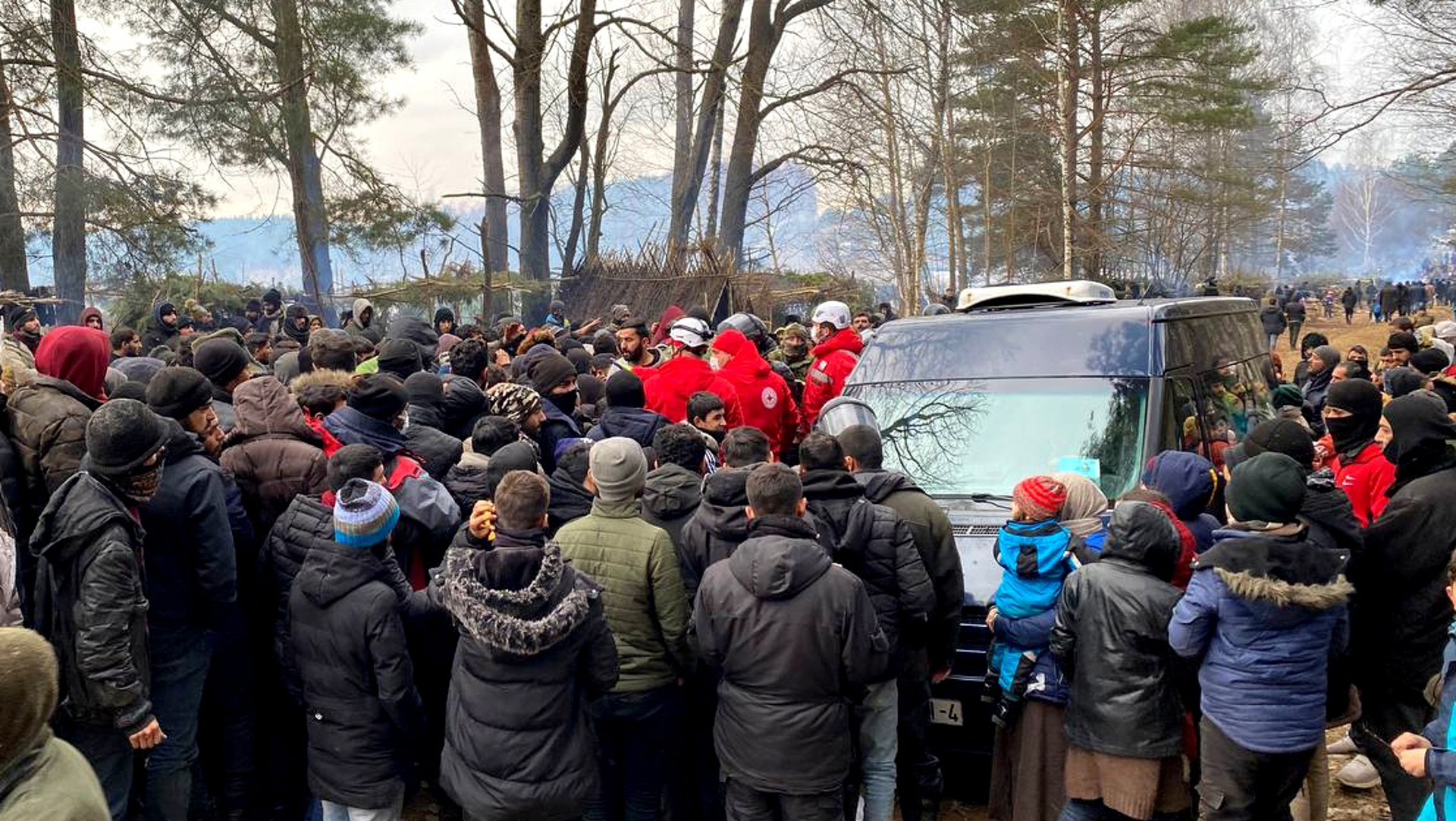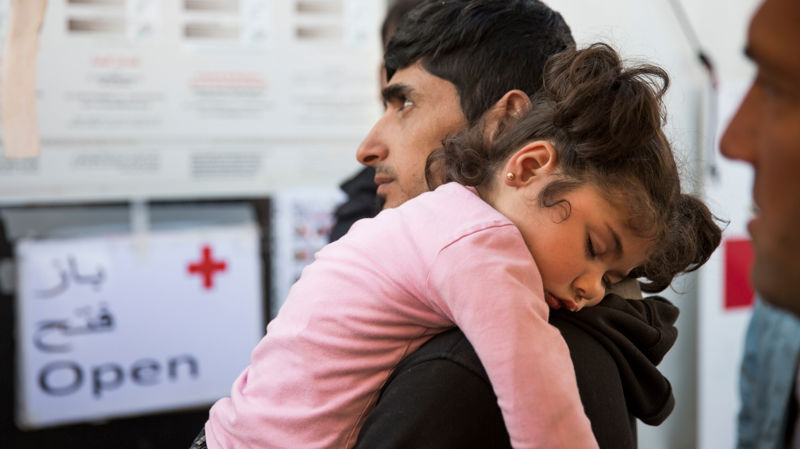The Red Cross is helping migrants struggling in dangerous conditions at the EU’s eastern border

Humanitarian operators must be allowed to reach those in need.
The situation of migrants trying to enter the EU at the border of Poland, Lithuania and Belarus is alarming. Thousands of migrants have been stuck on the border region since early autumn. The situation of people sleeping without shelter is expected to worsen as the winter approaches.
The Belarusian, Polish and Lithuanian Red Cross organisations are helping migrants at the borders by distributing food, clean water, hygiene supplies, clothes and blankets and by offering essential health care.
The health of the people sleeping rough is at continuous risk. At least 10 people are known to have died. Among them, a 14-year-old boy who died of hypothermia.
“There are hundreds of children at the border, many of whom have been separated from their families. The are also pregnant women and disabled people among the migrants. Their situation is worsening by the hour as the crisis drags on and nights become colder,” says the Director of International Operations at the Finnish Red Cross Tiina Saarikoski.
“All states are obliged to ensure that humanitarian aid gets through to its target. People have the right to necessary protection, care and safety, regardless of whether they are granted the right to stay in the country or not.”
The International Committee of the Red Cross helps migrants establish contact with their family members.
The Finnish Red Cross maintains preparedness for large-scale migration as part of its continuous readiness. As agreed with the authorities, the Red Cross is permanently prepared to establish and maintain reception centres and temporary accommodation units at the request of the authorities.
The Finnish Red Cross has not received official requests in relation to the situation in Poland, Lithuania and Belarus.
“The most important thing right now is to deliver necessary aid to the migrants in unsafe conditions and allow humanitarian operators to provide aid,” Saarikoski emphasises.
